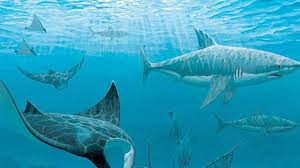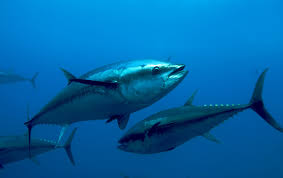Scientists have revealed that the tuna is recovering from being fished to extinction. Their numbers are back on the rise after more than a decade of conservation efforts, though some tuna species remain in severe decline, according to the International Union for the Conservation of Nature (IUCN) that follows the Red List. This is said to be happening because of the ever-increasing pressure on marine life. This news is proof enough that despite increasing pressure on our oceans, species can recover if we commit to sustainable practices. It threatened every 4 out of 10 sharks and rays with extinction in the ocean while the population of the Komodo dragon, the heaviest lizard on earth, is souring on land due to climate change with fear of rising sea levels.
Similarly, one in 3 wild trees are facing extinction, poaching is driving the elephants on edge, the ‘hedge trimmer’ fish is also facing global extinction. At the beginning of the world’s leading congress, and the revised list of the world’s endangered plants and animals was released in the French city of Marseille on 3 to 11 September.

“We can’t sit back – this is a wake-up call to the world that we need to do much more about our oceans and the biodiversity in them,” said Craig Hilton-Taylor, head of the IUCN Red List.
IUCN’s Red List of Threatened Species is the benchmark for measuring how close animals and plant species are to extinction. Of the 139,000 species assessed over the last half-century, nearly 39,000 have been threatened with extinction while 902 have already gone extinct. The Atlantic and southern bluefin tuna are slowly rising in ranks, though still endangered and have been doing well compared to the past, especially the albacore and yellowfin tuna. Though some marine species seem to recover, most of them are still under pressure.
The populations of sharks and rays continue to plummet due to fishing for meat and fins, climate change, and pollution. Where a third were deemed threatened in 2014 has now risen to 37%. We need desperate action to save these ancient creatures.
Global warming, hunting and pollution have been some of the major contributing factors to the extinction of species worldwide, while the problem is great the efforts are still limited and the process of conservation is prolonged.
Shashi A

